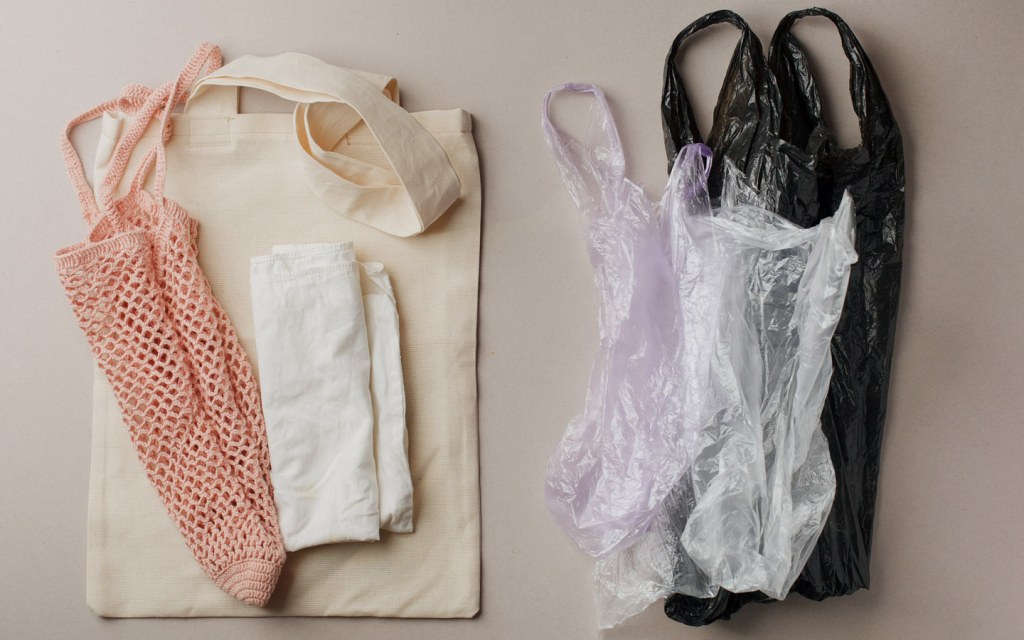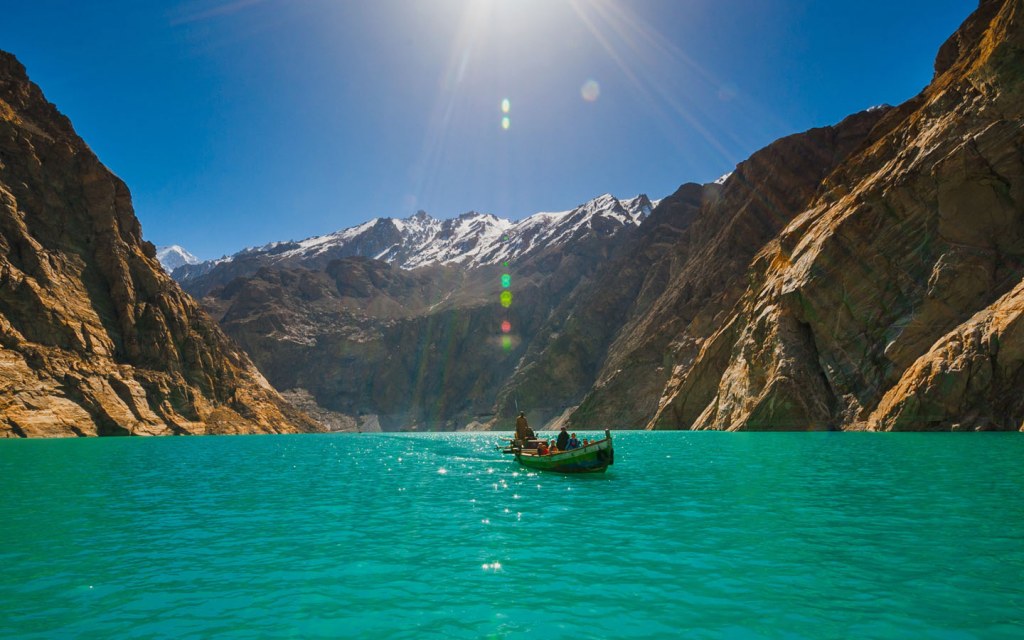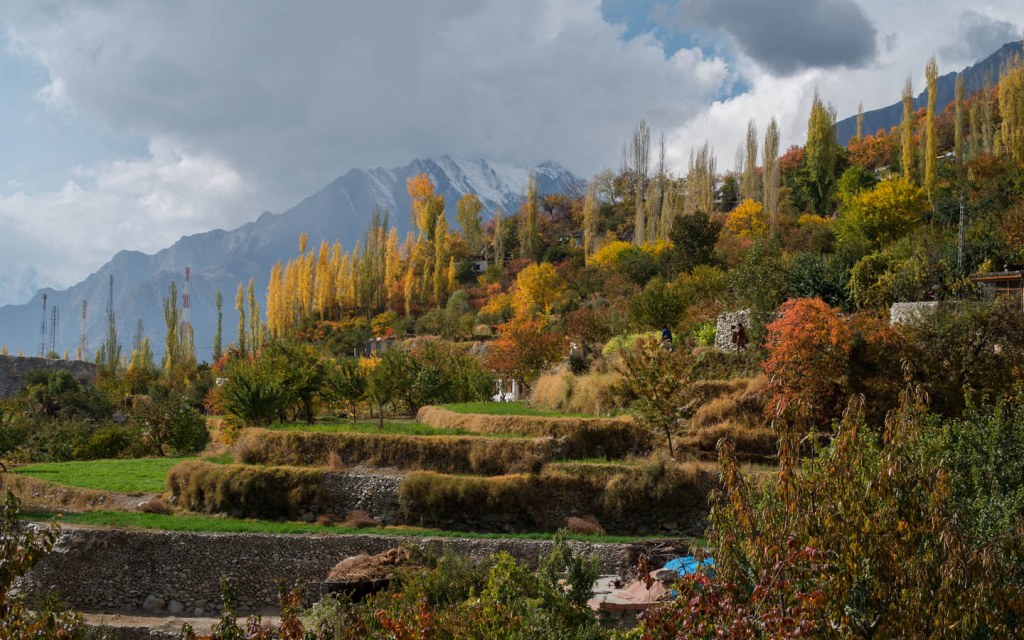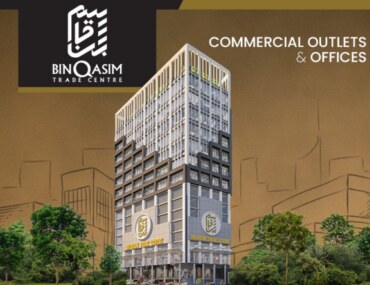In This Post
– The need for a plastic bag ban
– Plastic ban in Hunza
– Clean Hunza Project
– Visiting Hunza
Nestled between mighty snow-covered mountains and home to sprawling green meadows, enchanting blue rivers and enormous glaciers, the picturesque Hunza Valley has always been considered one of the top tourist destinations in Pakistan. Owing to its scenic views, hospitable citizens and peaceful environment, this breathtaking valley in Gilgit Baltistan has captured the attention of both domestic and international travellers, some of whom even dubbed it as the ‘Switzerland of Asia.’ Although the title is apt for this veritable piece of heaven on earth, Hunza Valley has also been awarded another title: the first plastic-free district of Pakistan.
As we all know, non-biodegradable plastic bags are a leading cause of environmental pollution across the world, especially in South Asia, where the problem is significantly worse. If you focus on Pakistan alone, you’d find that approximately 164,332 tons of plastic are dumped into the Indus River every year, making it the second most polluted river in the world. This plastic waste, which ultimately ends up in the ocean, poses a serious threat to marine life – and in turn, our entire ecosystem.
Plastic can take centuries to decompose and is extremely hazardous to human health. However, despite those statistics, the production rate of single-use plastic products has soared over the past couple of years. Owing to the ever-increasing threat of global warming, several countries have introduced bans on plastic bags and other products, including Pakistan. However, the results so far have not been as satisfactory as one would hope.
So, how did this narrow mountain-flanked valley in Gilgit Baltistan accomplish what most urban metropolises across the world have been struggling to do?
Well, let’s read to find out.
During a ceremony at Altit Fort – one of the most historic forts in Pakistan – Adviser to the PM on Climate Change Malik Amin Aslam called Hunza “the first district in Asia to be plastic-bag free” and congratulated the locals for their cooperation and support in keeping the scenic valley free of plastic bags.
But before we discuss how Hunza Valley became the first plastic-free district in Pakistan, and probably even Asia, let’s take a look at the reasons why using plastic bags should be banned everywhere on the planet.
The Need for a Ban on Plastic Bags

Here are some of the most prominent reasons why plastic bags need to be banned:
- Almost all single-use plastic items, including shopping bags, are made of polypropylene. It is a non-renewable fossil fuel-based materials, which emits a dangerous amount of greenhouse gases during the extraction and production phases.
- Since plastic bags do not degrade, they end up in oceans and continue to pollute the earth. Small pieces of plastics are then consumed by marine and land animals, which causes a host of diseases and often leads to their death.
- Smaller animals and sea creatures often get tangled in these discarded plastic bags and suffocate to death.
- The widely used polythene bags contain Bisphenol A, commonly known as BPA, which is extremely toxic for human health. Unfortunately, most of our food and beverages come wrapped up in this material.
- A ban on polythene bags is necessary because it is not easy to recycle and even when it goes through the recycling process, a significant amount of plastic still ends up in landfills and oceans.
Plastic Bag Ban in Hunza

In April 2019, this narrow valley in the north became the first district to impose a ban on plastic bags in Pakistan by prohibiting their use, purchase, import or export. In fact, using plastic was deemed a punishable offence. The ban, which received mixed reviews at the time, came into effect after a survey revealed about 70,000 of these lightweight plastic bags were discarded every month in the valley that has quickly become a major tourist hotspot.
Also, there are no official rubbish disposal sites or landfills in Hunza.
After the plastic ban in Hunza, similar bans were rolled out in different cities across the country, including Islamabad, Lahore, Karachi and Quetta. However, Hunza retains the title of the first plastic-free district of Pakistan, which is a praiseworthy feat considering this lush green valley receives more than half a million visitors every year.
In Hunza, the provincial government worked with the G-B Environmental Protection Agency and the Karakoram Area Development Organisation to launch the pilot ban, which aims to clean up the narrow, mountain-flanked valley that attracts more than half a million tourists a year. Moreover, a sizable portion of the mighty Karakoram Highway also runs through this district, adding to its popularity.
According to the media outlets, the local government in Hunza worked with the Gilgit Baltistan Environmental Protection Agency and the Karakoram Area Development Organisation to introduce the ban. These organizations also distributed about 10,000 biodegradable bags carrying anti-plastic slogans among the locals. Later, nearly 50 local women and over a dozen disabled citizens were hired to stitch environment-friendly shopping bags, which used to be a norm in the area before the arrival of cheap and convenient plastic bags.
As the locals made an effort to adjust to the ban on using plastic bags in Hunza, the tourists visiting the area hailed the government for taking such a significant step to protect the environment and natural beauty of this stunning valley.
Although completely eradicating the use of plastic remains a major challenge even in the developed nations, it’s certainly praiseworthy how Hunza Valley has managed to reduce its plastic usage.
Meanwhile, you can read more about the ban on plastic bags in Pakistan in our detailed analysis of the topic.
Clean Hunza Project

The Clean Hunza Project is a pilot program that is part of the wider initiative to completely ban plastic bags in the region.
In December 2019, Nestlé Pakistan signed a Memorandum of Understanding for Clean Hunza Project with the District Council Hunza, Karakoram Area Development Organization and Gilgit Baltistan Waste Management Company.
Given that solid waste management and disposal remains a large issue, the memorandum stated that the multinational food and beverage conglomerate will assist the local authorities with waste segregation, management of the site and recycling system. According to the press release issued by Nestlé Pakistan, the project will be sub-divided into phases. During Phase 1 of the partnership, the company will encourage waste management of about 150,000 kilograms of plastic per year. In the next phase, 50,000 kilograms of paper packaging such as used milk cartons will be collected. This figure will be increased by 10% each year.
It is important to note that solid waste management and disposal in Hunza is presently done under the supervision of Hunza Environmental Committee, which falls under the Karakoram Area Development Organization.
Visiting Hunza in Pakistan

Did you know Pakistan topped the list of best holiday destinations for 2020 by a US-based luxury travel publication named Conde Nast Traveler?
Well, now you do.
The truth is, Hunza Valley continues to be one of the most popular hill stations in Pakistan. It is also home to a few of the most underrated and hidden tourist destinations in Pakistan. The enchanting Attabad Lake, the giant Ultar Glacier, the historical Altit and Baltit Forts and the tall Passu Cones are all located in this area.
The best time to visit Hunza Valley in Gilgit Baltistan is between March and October. In case this magnificent valley is on your travel bucket list, make sure to take a look at our pick of top hotels to stay in Hunza before you make any reservations.
To learn more about dos and don’ts of travelling to the northern areas of Pakistan, head over to Zameen Blog, which aims to provide you with the latest information about travel, lifestyle, construction and property trends in the country. If you want to share any suggestions, drop us an email on blog@zameen.com. Moreover, you can subscribe to our newsletter to stay up-to-date by all that is happening in Pakistan’s real estate market.



